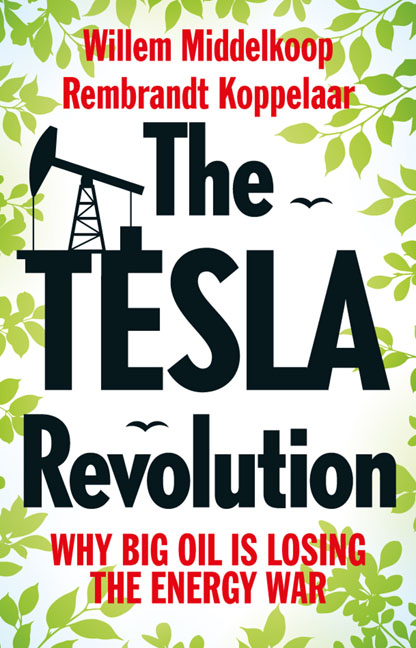Book contents
- Frontmatter
- Contents
- Prologue
- Special Introduction
- Chapter 1 The Tesla Revolution
- Chapter 2 A History of Fossil Fuel Dominance
- Chapter 3 The Petrodollar and the Geopolitics of Oil
- Chapter 4 Peak Oil Revisited: The End of Cheap Oil
- Chapter 5 Climate Change and the World of Energy
- Chapter 6 What Will the Energy Mix of the Future Be?
- Epilogue
- Appendix
- References Prologue
- Register
Epilogue
Published online by Cambridge University Press: 12 December 2020
- Frontmatter
- Contents
- Prologue
- Special Introduction
- Chapter 1 The Tesla Revolution
- Chapter 2 A History of Fossil Fuel Dominance
- Chapter 3 The Petrodollar and the Geopolitics of Oil
- Chapter 4 Peak Oil Revisited: The End of Cheap Oil
- Chapter 5 Climate Change and the World of Energy
- Chapter 6 What Will the Energy Mix of the Future Be?
- Epilogue
- Appendix
- References Prologue
- Register
Summary
This is the second book about the world of energy I have written with Rembrandt Koppelaar. While I was responsible for the concept, title, and story line, he did most of the hard work. His research took him through enormous amounts of information, and he always came up with amazing facts, necessary for this book to come into being.
I met this brilliant young academic in 2005 in Amsterdam, when he was just eighteen years old. He contacted us, a group of concerned Dutch individuals working to set up a Dutch peak oil group. Within a year he chaired our organization.
His in-depth studies of energy, starting in the early 2000s, soon made him one of the experts in this field. In an important publication about his 2006 peak oil model, he concluded:
Given the arguments above, I do not see how liquids production peak can be postponed much further than the end of the next decade. The increase in production from the conventional resource base (including deep sea) and NGL will probably plateau/peak at the beginning of the next decade. At this point, nonconventional sources may postpone a total liquids peak for a few years, but not much longer. At this moment, I see no reason to change my peak/plateau prediction for all liquids, which stands between 2012 and 2017.
While the jury is still out on his prediction on ‘all liquids’ production, the peak of conventional oil production seems to have occurred just as he predicted. Of course not all of our predictions from our first book came true. While we rightly predicted a mass shift towards alternatives like wind and solar and the EV revolution, we didn't see the importance of the upcoming shale oil revolution. The growth of this nonconventional form of oil production, especially in the United States, has amazed even industry insiders.
That was one of the main reasons we wanted to write an update about energy markets. Both of us wanted to find out what had changed since 2008.
Yes, our backgrounds are totally different. I, as founder and fund manager of the Netherlands-based Commodity Discovery Fund, want to understand clearly the enormous impacts of changes in the world's future energy mix. It really helps us to understand the different supply and demand fundamentals for many commodities needed in this industry.
- Type
- Chapter
- Information
- The Tesla RevolutionWhy Big Oil is Losing the Energy War, pp. 253 - 256Publisher: Amsterdam University PressPrint publication year: 2017



